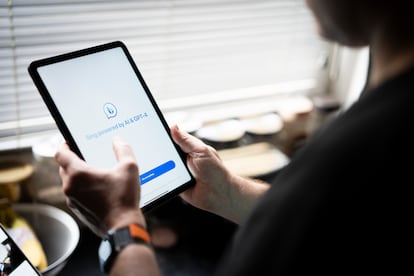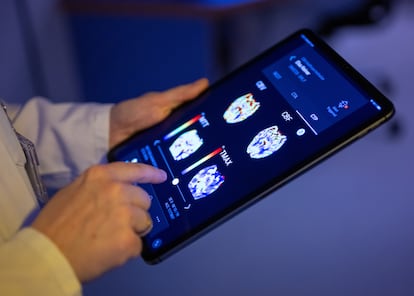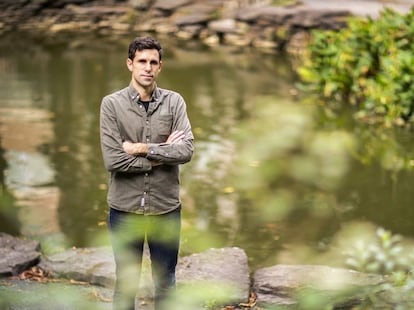Latino technologists are leading the AI revolution
A new generation is emerging at the forefront of the artificial intelligence explosion to create a brighter future for their communities

Artificial Intelligence (AI) can mean many different things. Even experts have a hard time agreeing on a single definition, but most think about AI as a branch of computer science that allows computers to make predictions and decisions to solve problems. However no one doubts that AI is reshaping the world as we know it, providing groundbreaking solutions in industries ranging from healthcare to transportation.
Dr. Juan Gilbert, a professor at the University of Florida focused on applying AI to solve complex social, cultural and organizational problems, said in a 2019 interview with Forbes magazine, “As long as we have diverse leaders, we have a chance for an equitable participation in the AI revolution.” According to Becky Frankiewicz, President of ManpowerGroup for North America, “There are many opportunities. After the pandemic, the power balance shifted from companies to employees, and now “80% of companies cannot find enough technology talent.” A dedicated group of tech-savvy Latinos is actively working towards bridging the gap and addressing the challenges that their communities face.
Laura Montoya, the founder and executive director of Accel.AI, started the global nonprofit organization in 2016 with a mission to drive artificial intelligence for social impact initiatives. Montoya was raised by a single mother in the San Francisco Bay Area and has dedicated her career to making AI education more accessible and diverse, particularly for women and people of color. In a recent interview with Latino Rebels, Montoya spoke about the importance of representation in the tech sector: “We need diverse perspectives in developing the future of intelligent systems to ensure the technology we build together is fair, just and equitable.”
Montoya also started LatinX in AI, a nonprofit organization to bridge Latino communities and individuals working to further AI innovation. The organization supports research, development, infrastructure and mentoring programs to boost innovation and capabilities of Latino professionals working in artificial intelligence, machine learning and data science. “It’s an incredible place for networking, sharing ideas and knowledge. It really accelerates the development of AI in our countries,” said Ricardo Carrillo Mendoza, a research scientist with the Dahlem Center for Machine Learning and Robotics in Berlin.
Another remarkable leader is Mariana Costa Checa, the co-founder and CEO of Laboratoria, a social enterprise that teaches coding and digital skills to young women in Latin America while also fighting gender inequality. Under Checa’s leadership, Laboratoria has inspired and equipped thousands of women, providing them with valuable skills and employment opportunities in the tech industry. In his remarks at the 2016 Global Entrepreneurship Summit, then-President Barack Obama applauded Costa Checa’s work with Laboratoria, saying, “When we were talking backstage, I said, ‘60% of the women who have gone through this program now are employed.’ And I was corrected – it’s now 70 percent. I had old data. But I think it’s important to point out that your success rate has been quite extraordinary.”
Jesse Martinez, a first-generation Mexican-American entrepreneur, founded the Latinx Startup Alliance in the San Francisco Bay Area. Committed to fostering an ecosystem of Latino tech entrepreneurs, the organization provides a supportive community and resources to help Latino startups succeed. Martinez’s work is not only contributing to the growth of Latino businesses but also increasing Latino representation in the tech industry. Now based in his hometown of Houston, Martinez described how he got the idea. “In 2010, I was looking to do my second startup and was looking for resources and help. So I did some Google searches, thinking ‘I’m Latino, I’m a tech and startup founder – what’s available for us?’ And there was nothing. That left me scratching my head. How can this be? This is the global mecca of tech. We launched in 2011 in the Mission District of San Francisco with six people and a mission to empower Latino tech founders. Fast forward to today, we’re over a thousand members globally, but our mission is still the same.”
On a wider scale, AI4ALL is a nonprofit working to increase diversity and inclusion in AI. While not solely focused on the Latino community, AI4ALL runs AI education programs for underrepresented groups and fosters a sense of community among its students. Tess Posner, CEO at AI4ALL, says, “The future of AI should be in the hands of a diverse group of people, to ensure it serves all of humanity.”
These organizations and many more are crucial in improving representation and inclusion of Latinos in AI, thus shaping the future of the industry to be more diverse, equitable, and innovative.

In the healthcare sector, Dr. Carlos Guestrin, a computer science professor at Stanford University, developed an AI tool that can help doctors predict the development of diseases. Originally called GraphLab and renamed to Turi when the tool was sold to Apple, it has been recognized for its potential to transform healthcare by enabling personalized treatment and preventive care. In a conversation with GeekWire, Dr. Guestrin said, “The ultimate goal of machine learning in healthcare is to understand individuals at a deeper level, and predict what’s the best intervention for them.”
César de la Fuente, a professor of bioengineering at the University of Pennsylvania, leads a team that recreates extinct human biological material using artificial intelligence. For years, the World Health Organization (WHO) has been warning about the threat of drug-resistant microorganisms. These superbugs are projected to cause the deaths of 10 million people annually, surpassing the number of deaths caused by cancer. In this massive battle, César de la Fuente wields artificial intelligence as a powerful tool to detect thousands of molecules with potential antibacterial properties.

These stories underscore the immense value of AI in addressing various societal challenges. As more Latino technologists break into the field, the future of AI looks increasingly diverse, innovative and impactful.
Sign up for our weekly newsletter to get more English-language news coverage from EL PAÍS USA Edition
Tu suscripción se está usando en otro dispositivo
¿Quieres añadir otro usuario a tu suscripción?
Si continúas leyendo en este dispositivo, no se podrá leer en el otro.
FlechaTu suscripción se está usando en otro dispositivo y solo puedes acceder a EL PAÍS desde un dispositivo a la vez.
Si quieres compartir tu cuenta, cambia tu suscripción a la modalidad Premium, así podrás añadir otro usuario. Cada uno accederá con su propia cuenta de email, lo que os permitirá personalizar vuestra experiencia en EL PAÍS.
¿Tienes una suscripción de empresa? Accede aquí para contratar más cuentas.
En el caso de no saber quién está usando tu cuenta, te recomendamos cambiar tu contraseña aquí.
Si decides continuar compartiendo tu cuenta, este mensaje se mostrará en tu dispositivo y en el de la otra persona que está usando tu cuenta de forma indefinida, afectando a tu experiencia de lectura. Puedes consultar aquí los términos y condiciones de la suscripción digital.








































